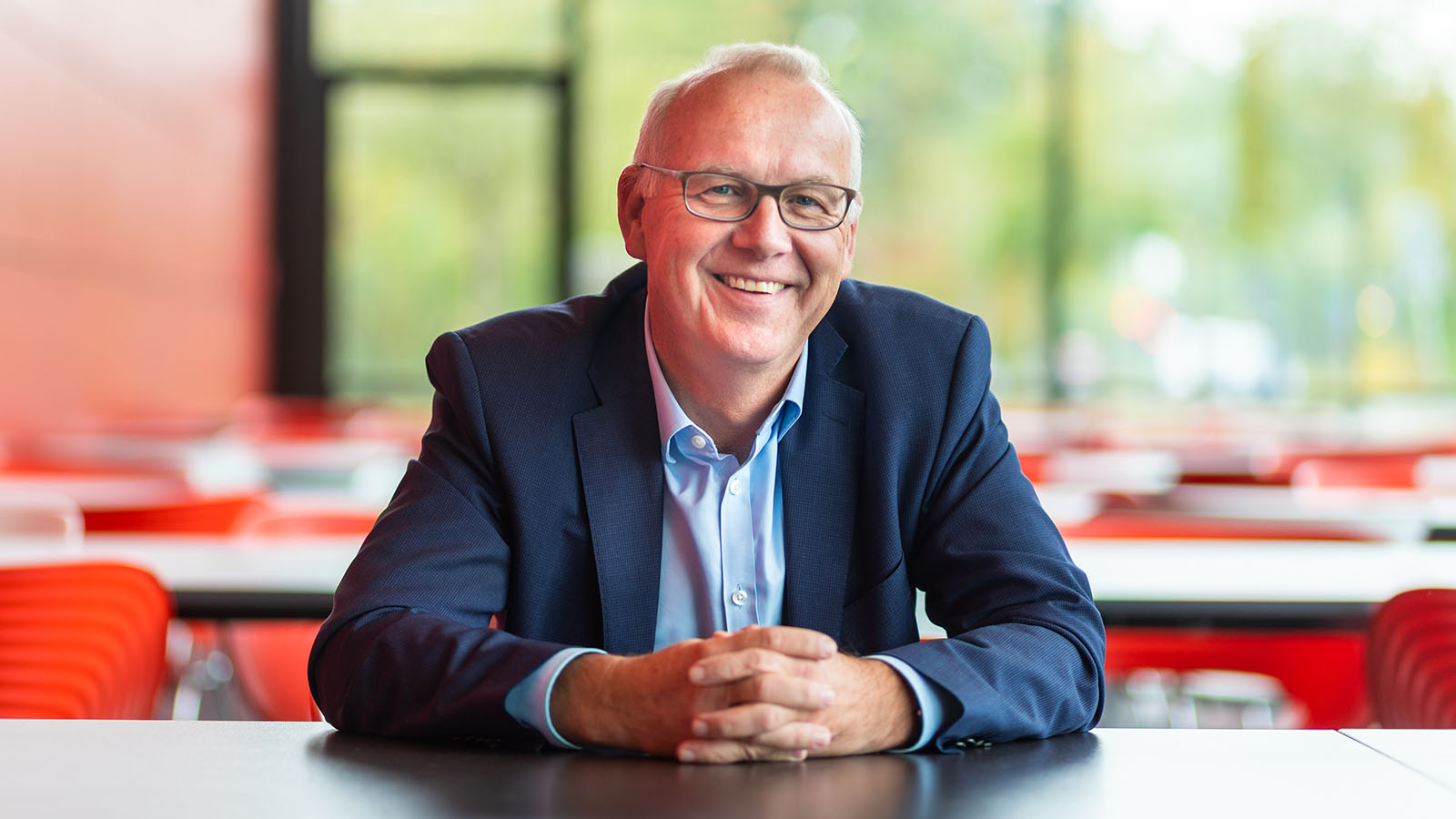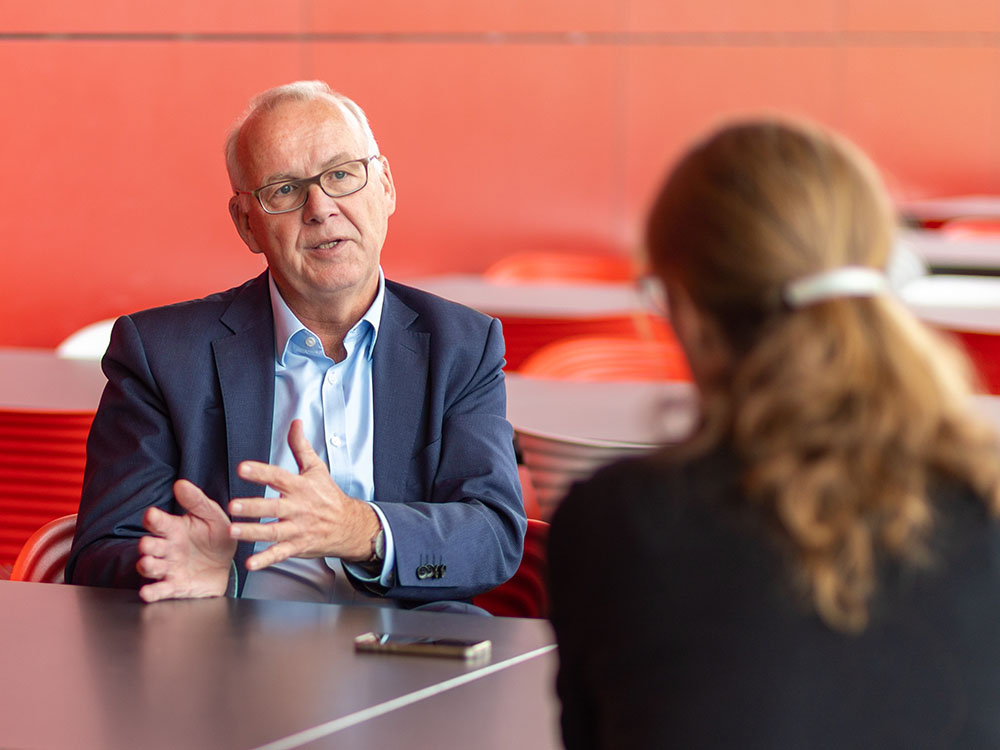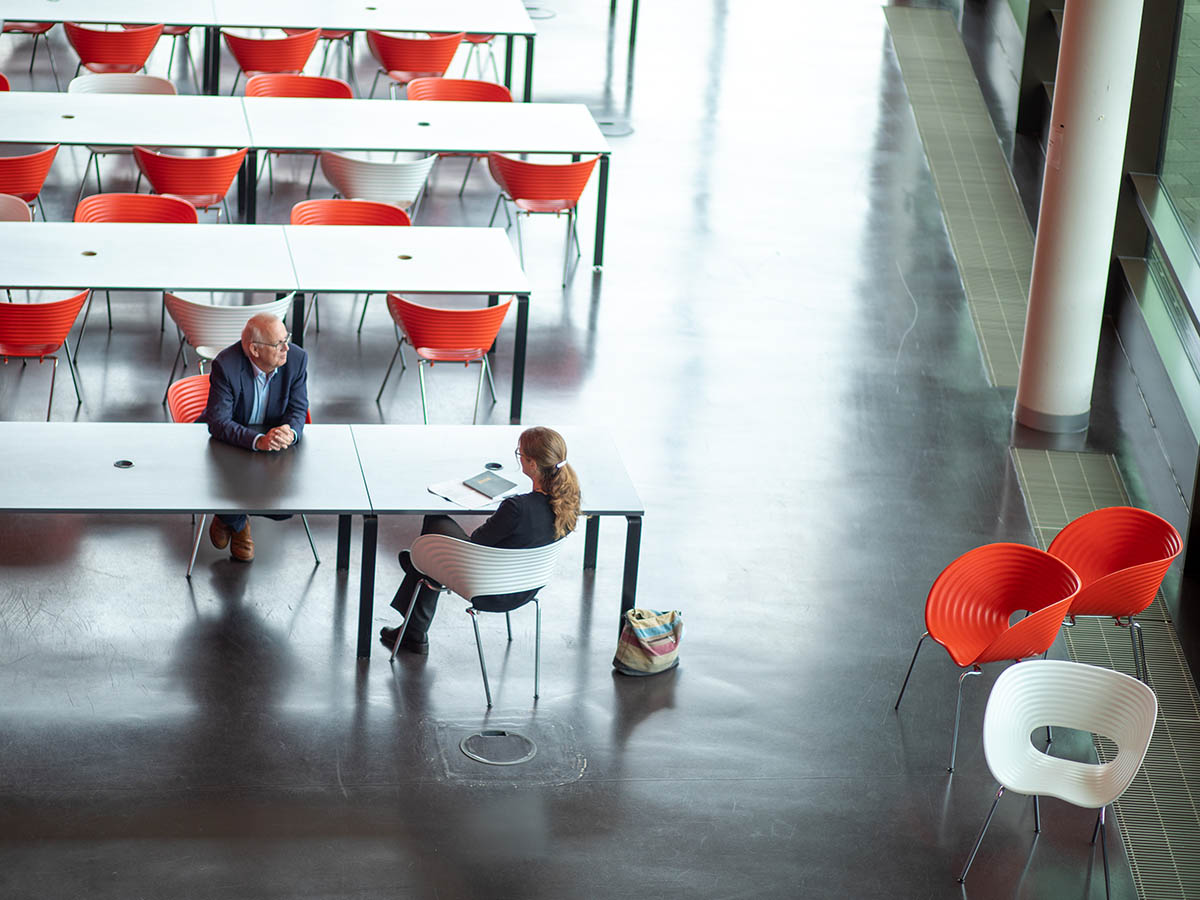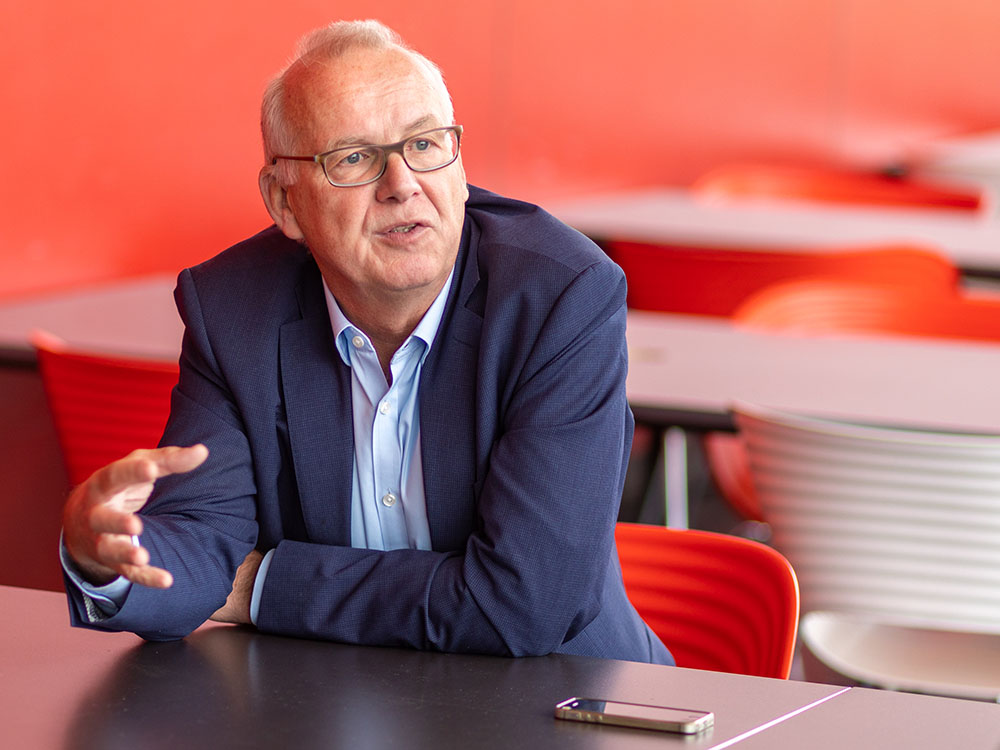
© Matej Meza / Universität Bremen
“We Will Come Out of this Crisis Much Stronger”
How the president, Professor Bernd Scholz-Reiter, personally found the last few months and with which expectations he is entering into the winter semester and the university’s birthday
A look back at the start of 2020: Due to the corona pandemic, the University of Bremen had to close its buildings and restructure all of its operations within only a few weeks. The campus was like a ghost town for a long time. How did the president, Professor Bernd Scholz-Reiter, experience this time? How has his day-to-day working life changed due to the pandemic? And where does he see opportunities for the university in this crisis?
Mr. Scholz-Reiter, when you look back on the beginning of the year, what was the situation like for you as president when everything began?
It was obviously clear to us that the corona pandemic would at some point arrive in Germany. And we were prepared. However, we did not expect it to arrive in Bremen and at the university with such force. With that I mean that we relatively quickly had cases of people being infected at the University of Bremen and also had to deal with the tragic passing of one of our staff members. It was in this situation, at the latest, that we knew we had to close the university buildings.
It was not possible to do that very suddenly.
No, it was a long process. We initially closed the buildings that were closely connected to the infection cases. Then we successively continued. In total, the process took around two weeks. We cannot simply just close the doors but have to discuss everything, find solutions, and communicate. We were lucky that the pandemic hit us in the non-lecture period. However, we had many exams planned that we then had to move or postpone. We had to let all of the affected persons know about this. It was obviously a challenge to find acceptance in such a short space of time, as it was probably the same for most people as for me: No one in my immediate vicinity was infected with corona. Compared to the total number, it was a low amount at the university – even if the potential cases of people infected with corona was a three-digit figure intermittently. But there was no personal experience available. Campaigning for understanding and explaining the seriousness of the situation are still required today.

© Matej Meza / Universität Bremen
What do you mean by that?
A university is a complex organization with several tens of thousands of people who meet each day in various groups and constellations in different rooms on campus. You cannot compare it to a school – not in terms of the number of people who are in the institution and not in terms of the diversity of classes. They cannot be put into the same groups, as is possible with school classes. For example, the student participants enter classes every two hours and create new groups each time. And that is why the risk of transmission during a pandemic is much higher in such an organization than it is in a school, for example. It requires far more protective measures and more organization. The future will show whether we are able to overcome this challenge together. We need to react flexibly depending on how the situation develops.
How has your day-to-day life as president changed during the pandemic?
At the beginning of the pandemic, it was important that quick decisions were made and communicated. When the decisions were then implemented, my personal working day changed in that I now have a more structured day. That was not the case beforehand, as I had many representative and evening appointments. And work trips on top of that. It was sometimes that case that I was on a train at six in the morning and only returned at midnight. Nevertheless, my current working day is full and I have a tight schedule. We, of course, have just as many internal and external meetings – just digitally most of the time.

© Matej Meza / Universität Bremen
What opportunities do you see for the university in this crisis?
Despite all the difficulties, we have shown that we can deal with extraordinary situations and can adapt to them. The core operation of the university – namely teaching, exams, and research – can continue - even if this is often with delays and restrictions. I would say that during this pandemic we continue to achieve most of what we usually do, and this will improve with an increase in experience. We will come out of this crisis much stronger and be able to confidently say that we are able to overcome crises together. The University of Bremen is equipped to do that.
Is digital teaching being developed due to the situation?
We are and remain a traditional university with face-to-face teaching. That has always been our explicit aim, which you can also take from our strategy document that covers the period up to 2028. Nothing has changed in terms of this general approach. We did however know – and that can also be taken from the strategy document – that digitalization holds many opportunities for teaching, research, and administration. Thanks to the digitalization push in the summer semester, we have been able to experience said opportunities first-hand. This is a very simple example: The use of video conferences. Many people had not used them beforehand and now many university members are using them with confidence. The same can be said for the supporting digital tools for teaching. Such aspects will remain, even if they are fewer than face-to-face lessons. Working together in person is important to us, after all. That is what makes a university special. Education and research are passed on through talking to each other and working together. This enables the founding of a trust relationship and understanding for each other.
With which expectations are you going into the winter semester?
Above all, I hope that our first-semester students develop a good connection to our institution and not only experience us as a digital university. Under adherence to the transmission protection measures, we want to offer them the chance to find contacts and integrate themselves in the university community. We will do everything for this. I hope that we manage to implement this as best as is possible.

© Matej Meza / Universität Bremen
The university is celebrating its 50th birthday in 2021. What is your biggest wish for this event?
That we, thanks to this birthday, become aware again of what we have achieved in the past 50 years as an institution due to the work put in by thousands of people. That we have taken many positive things from our development process and that we have become what we are today due to said development. At the same time, that time is progressing, and we want to continually develop further. The Europeanization and internationalization of the University of Bremen are extremely important at the moment. We are experiencing these aspects, for example with the YUFE alliance, in which we are creating a European university together with nine partner universities in the coming years. That is one of my wishes. My second wish, which aimed more externally, is that we manage to show and communicate our spirit to the outside world in the jubilee year. And that the Bremen citizens, who after all help to fund the university with their tax money, know and appreciate what they have in the University of Bremen.